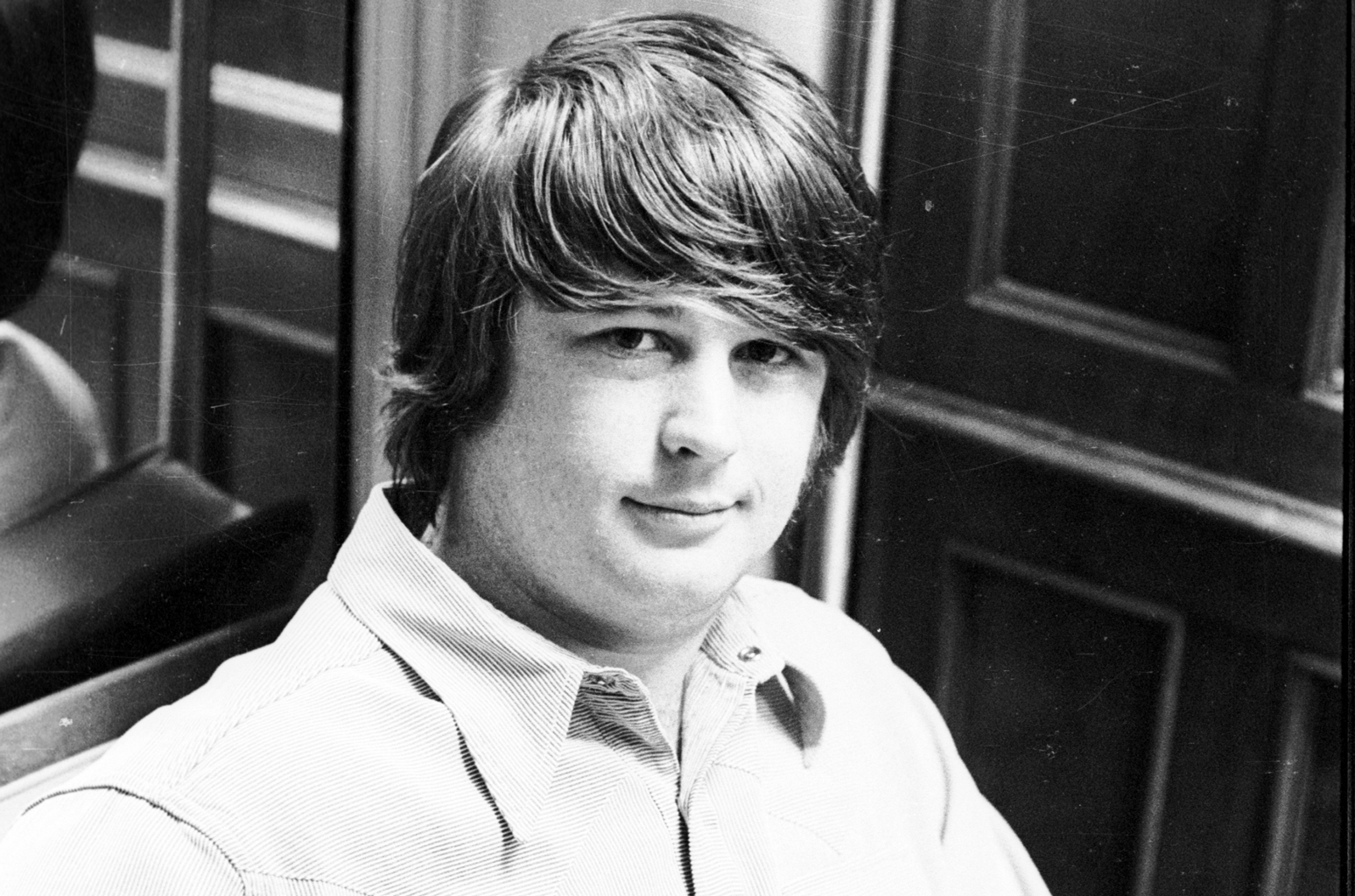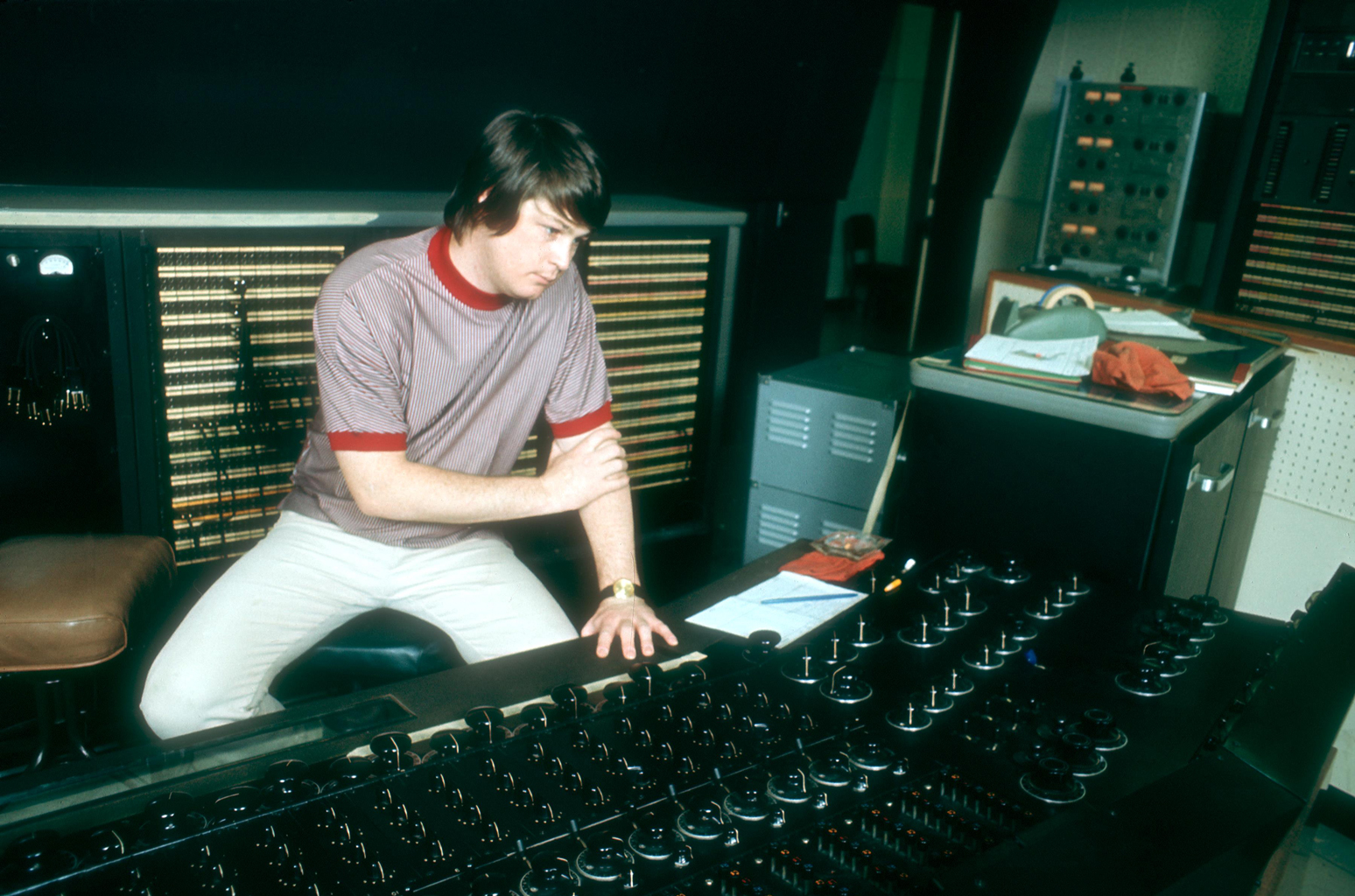Entertainment
Janis Ian Opens Up About Losing Her Voice, Industry Frustrations & Agreeing to Make a Documentary
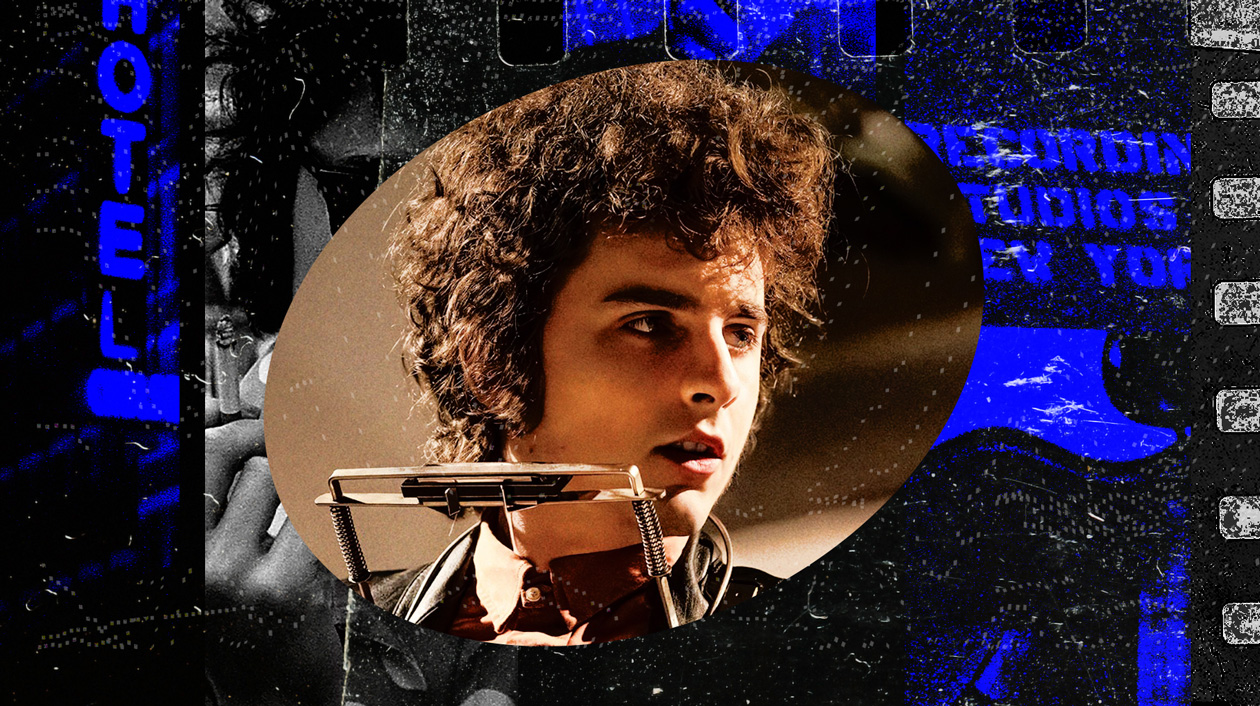
Janis Ian: Breaking Silence — a career-spanning documentary about groundbreaking singer-songwriter Janis Ian, in theaters now – began with a simple, polite message to the artist’s official website.
“I said, ‘Hi, my name is Varda Bar-Kar, I’m a filmmaker and I’d like to make a film about you,’” the London-born director tells Billboard. “And I said ‘no,’” interjects Ian with a mischievous smile. “That was my kneejerk response.”
The film’s journey might have ended right there had it not been for Bar-Kar’s gentle persistence and a few helpful coincidences. Despite the dismissive greeting, the director kept in touch, sharing links to a few of her other documentaries, Big Voice and What Kind of Planet Are We On?; additional correspondence between the two revealed mutual acquaintances, similar experiences and a shared interest in Zen Buddhism.
“I had just walked away from a potentially lucrative [movie] deal with another entity,” Ian says of her reticence to participate. “I firmly did not want a puff piece.” But after viewing a 20-minute proof of concept from Bar-Kar, the Grammy-winning singer of “At Seventeen” felt like she could trust the director with her time and story.
“I wanted something that reflected the times,” Ian says of her dream for the project — and Bar-Kar’s engrossing, informative documentary does that superbly. Watching the film, one gets as much of a sense of America’s complicated, shifting identity over the decades as one does Ian’s own life and personal evolution. We watch the turmoil of the Civil Rights era inspire Ian, a 14-year-old girl from a farm town in New Jersey, to write “Society’s Child,” a song about an interracial romance smothered by external prejudices. Then, we see how American audiences – with all their contradictions and confusions – reacted: Some hailed her as an astonishing, bold voice, pushing the single to No. 14 on the Billboard Hot 100 in 1967; others hurled racial slurs at her during concerts, reducing the teenage singer to tears for daring to suggest love could go beyond racial boundaries.
That song wouldn’t be the last time that Ian – who publicly came out as a lesbian in 1993 – would find herself alternately celebrated and pilloried by audiences and industry players. Named after the album that came out when she did, the film uses Ian’s unusually insightful music, her memories and fresh interviews with Joan Baez, Arlo Guthrie, Lily Tomlin, Laurie Metcalf, Jean Smart, the late Brooks Arthur and others to tell the story of her impact and importance.
Ian and Bar-Kar sat down with Billboard one morning in Manhattan to discuss making the film, frustrations with music licensing, why the former’s performance on the first-ever episode of Saturday Night Live isn’t included in this doc and plenty more. Janis Ian: Breaking Silence is in select theaters now, and hits streaming on April 29.
As we see in the documentary, Janis, you were a guest on Leonard Bernstein’s TV program at the age of 14. I know he did the Young People’s Concerts series – were you aware of him and how big of a deal that was at the time?
Ian: It didn’t even occur to me. The Bernstein thing didn’t compute that it would be any big deal. My parents and grandparents were freaking out, but for me, I had to get my Spanish homework done. Felicia Bernstein [Leonard Bernstein’s wife] helped me with that homework. (My parents) had wanted the second-generation immigrant dream (for me). I was clearly musically talented, so they wanted me to be a classical pianist. But if you look at my hands, the only thing I could’ve played was Mozart or Bach. And I wasn’t interested: the minute I discovered boogie-woogie and rock n’ roll, that was it. Either that or (they wanted me to be) a doctor, and I had zero interest in being a doctor. When I said I was going to be a singer-songwriter, nobody was thrilled. They were supportive, but they weren’t thrilled. Bernstein was like, as someone says in the film, the mark of God. He was hellbent on convincing the old guard that believed the only real culture was European that America had its own culture. He fought that battle his entire life…. “Society’s Child” aligned with his whole community service: the concept of the artist as someone of service to the community.
In the film, you talk about starting out by imitating Odetta and Joan Baez and taking a moment to find your own voice. Even so, you found it fairly quickly. Do you have any advice for young artists who are already making music but still searching to lock in on their own voice?
Ian: I think my generation in some ways was much luckier than this one. Lyrics were not usually with albums, so you would sit down with the new whoever album and copy out the lyrics. Any artist knows that when you imitate and copy, it’s just like a computer – if you put garbage in, you get garbage out. So by copying Bob Dylan, Dylan Thomas, Odetta as a vocalist or people like Joan Baez and Billie Holiday, I was really putting the best into myself. I encourage people to imitate other people, because it lets you know what you’re not good at. But the next step for me was that I realized I was not hearing the voice on tape that I heard in my head. So I apprenticed at (a studio) when I lived in Philadelphia for nothing. I swept floors, I did patching and I learned about cables, and in return they would let me work with the second or third-tier assistant engineer for an hour a night. Working with a really good Neumann microphone watching the meter, I learned how to sing without a limiter, which gave me this vocal control. Even now with my vocal scarring, my (doctor) told me I still have better breath control than most people. It took three years to get the voice in my head to come out on tape. Now, for better or worse, you don’t have the gatekeepers. You don’t have the time you had – or were forced into – to create yourself, because ultimately artists end up creating themselves. It’s difficult when you can put out music every three months, because the temptation is to believe whatever you’ve done most recently is the best. And a year later you’re looking at it thinking, “Oh, my God.”
Varda, this film includes a lot of vintage clips and music – all of which effectively puts you into each era, but it must have been a beast to license.
Ian: (laughs)
Bar-Kar: Finding them was fun. It was like a treasure hunt. The film took a number of years, I did a lot of research. I even read a whole book about the summer camps (Ian attended as a kid).
Ian: The commie-pinko camps (laughs). I sent her everything that I had digitized.
Bar-Kar: I went through all of that. My daughter, Paloma Bennett, was the archive producer and she has an incredible capacity for taking in a lot of material. And there’s a lot of music in there as well. With regards to the licensing…
Ian: It was a nightmare. She’s never going to use music in a film again and I told her I’ll make it up to her: she can use anything I own.
Bar-Kay: (laughs) I stuck it through, though.
Ian: We started off with almost 50 songs, and I don’t own all of them.
Bar-Kar: It was fun to research, but the music licensing part was very difficult.
Janis, you sang “At Seventeen” on the first episode of SNL, which is not featured in the movie. Was that a licensing issue with the footage?
Ian: I think we decided it was irrelevant. It was a blip.
Bar-Kar: Actually, it turned out to be very fortuitous.
Right, all the SNL 50 celebrations and movies.
Ian: They did our publicity for us.
Bar-Kar: Fate is amazing sometimes. We already had the Johnny Carson performance of “At Seventeen.” It’s one of those things where if you have too much, it diminishes it, it doesn’t add to it. It was smushing too much together.
Ian: And looking back now, people go, “Oh that was a landmark thing.” But then, it was very much not – nobody cared. The show didn’t have legs until the second episode when Paul Simon was on. But NBC has done a brilliant job of making a lot out of it.
Bar-Kar: It’s almost like a trilogy now: there’s the Bob Dylan film (A Complete Unknown), SNL 50 and now our film. They fill in the different gaps.
Ian: I thought the Queen film that came out before was one of the best biopics I’ve ever seen. That’s the only film I’ve ever seen where walking on stage in a huge amphitheater is actually accurate. Everybody thinks there’s all these people making a gangway for you, waving you on. No. There’s equipment flying past you, there’s people shoving you. They don’t care if you’re making 10 million dollars that night: they just don’t want you getting hit by the Anvil case.
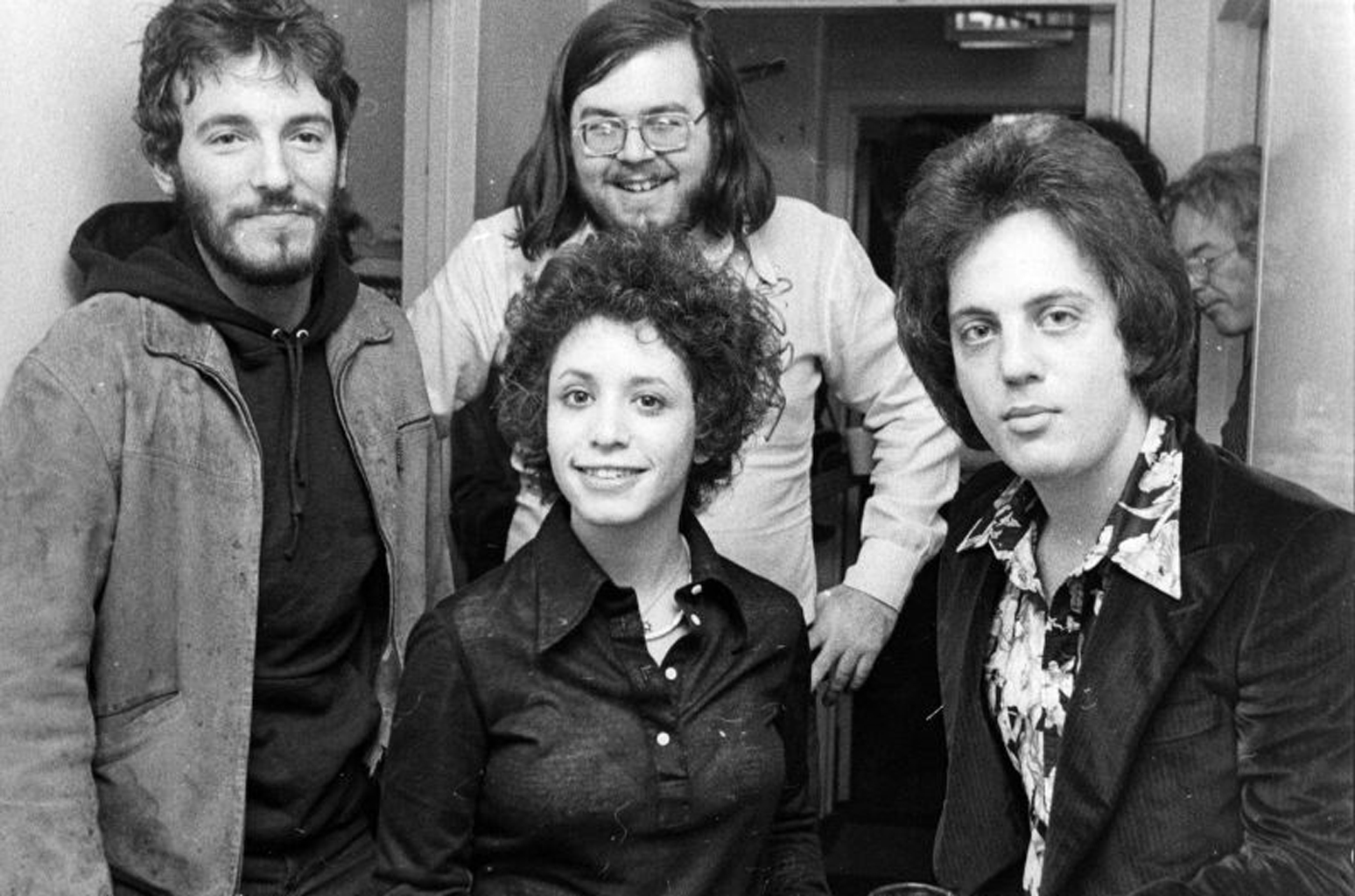 Bruce Springsteen, Ed Sciaky, Billy Joel and Janis Ian in ‘JANIS IAN: BREAKING SILENCE.’
Bruce Springsteen, Ed Sciaky, Billy Joel and Janis Ian in ‘JANIS IAN: BREAKING SILENCE.’
In 2022, Janis, you had to cancel your farewell tour due to scarring on your vocal cords. In the film, you talk about feeling deprived of a sense of resolution that farewell tour may have provided. Does this film, in some sense, give you that resolution?
Ian: No, there’s really no resolution for it. It’s difficult to know how to respond because I don’t know how I feel about it still. I think if I had been in my forties or fifties, I might have tried some of the surgeries, even though 90% (odds) it would just come back worse. But having talked to specialists, I know I’m really lucky I retained anything. It is what it is. My ENT [ears, nose and throat] guy, who I really trust said, “Look, you had a 60-year career full tilt. You made, what, 25 albums, toured nine months a year? That’s an unbelievable amount of vocal use. And the instrument is just not made for that.” I’m really grateful. I think as an artist, you live with a monkey on your back, and the monkey keeps saying, “you’re not doing enough, why aren’t you better? Why aren’t you more? Why aren’t you perfect?” And there is no perfect. This last album I made (2022’s The Light at the End of the Line) was the first time in my entire life I felt I had actually lived up to my talent. So to live long enough, to do that as a writer and a singer, that’s a resolution in and of itself.
It must have helped with that album that you were able to take your time – unlike, as you talk about in the movie, your Aftertones album, which you felt rushed into releasing after “At Seventeen” hit big.
Ian: Yes, Aftertones, bane of my existence. And the fact that (The Light at the End of the Line) got nominated for a Grammy [for best folk album] – I wasn’t even politicking at all – was astonishing. That gave me my tenth nomination. If I look at it that way, it’s an amazing career. And it still is.
And unlike some singer-songwriters who are decidedly more the latter, you truly used your voice to its full power.
Bar-Kar: [to Ian] I love your singing voice.
Ian: I can get away with a half a verse, maybe, but I don’t know what would happen if I tried to sing a full song.
Your song “Stars” has been covered by a lot of artists, including Nina Simone, which is a huge compliment. Did you ever get to spend time with her?
Ian: Old friends. Some people are hard to be friends with. Nina was not easy to be friends with. But worth every second. At the Village Gate she did a 10-minute show, and somebody said to me, “Why do you keep coming to see her?” I said, “I learn more in 10 minutes than 10 hours from anybody else.” That’s how amazing she was. That was the same night she came backstage complaining she missed her mother so much, and my mom was backstage with me, so I blithely said, “Why don’t you come for lunch tomorrow?” My mother said (whispers) “shut up, shut up.” She said, “You got us into this, you’re doing the shopping and you’re hosting.” (Simone) showed up with James Baldwin and they both proceeded to get seriously potted. My ex-husband had to carry Nina to the cab.
Bar-Kar: I highly recommend her autobiography. There’s so much more to her story than what’s in the film.
Ian: It’s out of print right now, but Random House gave me my rights back two weeks ago.
Bar-Kar: Wait two months and buy it.
Ian: You can still download it or download the Grammy-winning audiobook (smiles). I know a lot about song licensing because of (singing and narrating my audiobook). … I just went through a thing. Sony has my admin right now — just because I really like the person in L.A., that’s the only reason (I’m with) Sony, it’s a corporation. The royal British something-or-other wanted to use a song of mine in a textbook. To me, that’s a great compliment. It’s been eight months and they haven’t been able to get an answer. It becomes a ridiculous nightmare. There are a lot of people at corporations who should have nothing to do with music.
Bar-Kar: I heard it used to be different, that it was people who loved music and now it’s more of a business.
Ian: Failed musicians would go into the music industry. And then the suits came in the early ‘80s, late ‘70s, that was the first generation of Harvard Business School graduates. That was why I left CBS in ’83. I looked around and I thought, “This is all lawyers.” And I don’t have a problem with lawyers, but I do have a problem when you start phasing out everybody who cares about music. They made it impossible for the remaining people. They’re so big but they’re so understaffed because they wasted so much money – all that coke that went up the executives’ noses, I think. They always said the singers did it, but it wasn’t the singers as much (as them). We could do an entire Billboard magazine about that.
Entertainment
Tim Dillon Fired From Riyadh Comedy Festival for Saudi Slavery Remarks: ‘They Didn’t Like That’
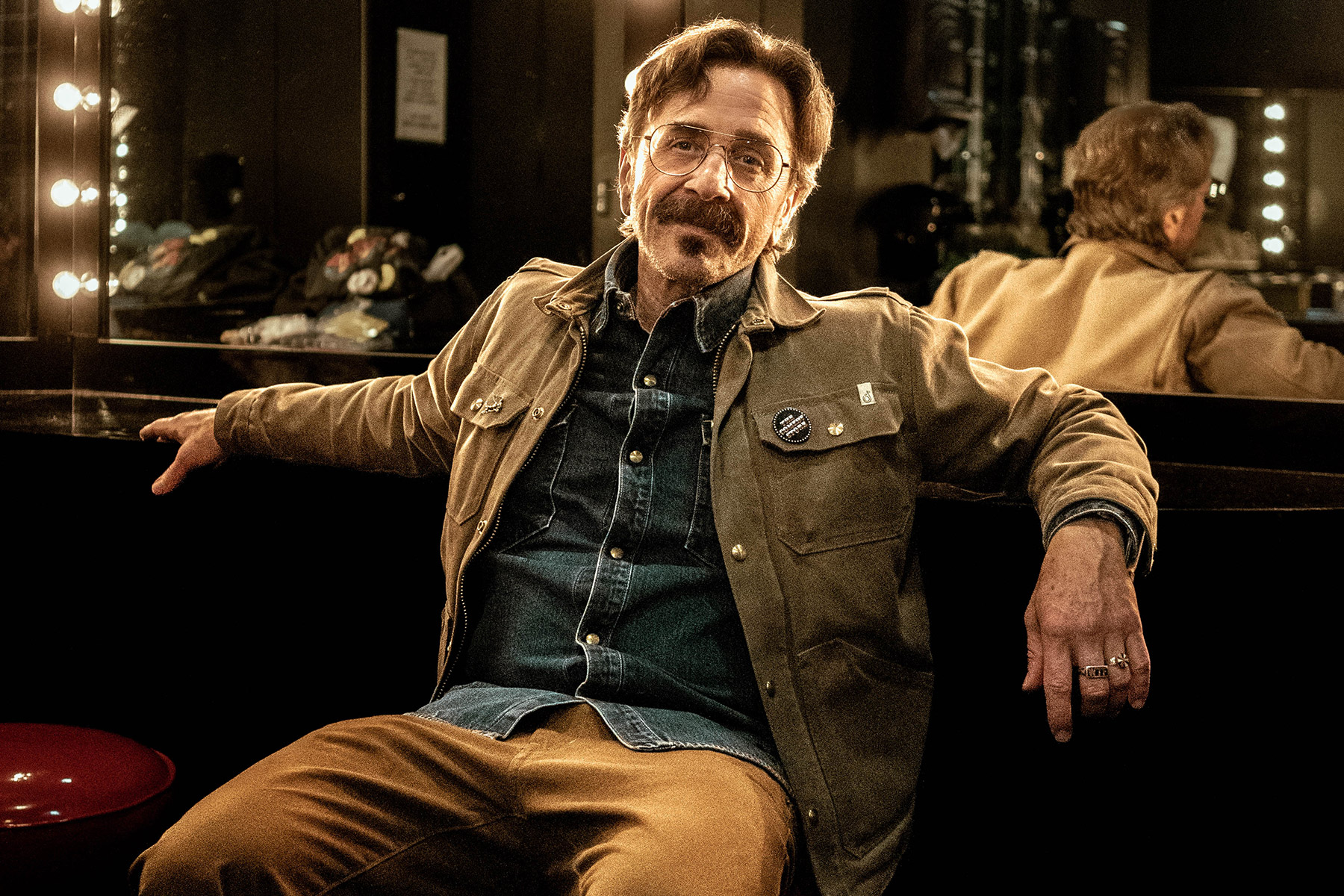
Tim Dillon will not be traveling to the Riyadh Comedy Festival next month. The California comedian and host of The Tim Dillon Show podcast says he was fired from the Oct. 8 Saudi Arabia festival for comments he made about the country on Joe Rogan‘s podcast.
Besides losing a $375,000 payday (an amount Dillon confirmed to Rogan), he also lost a nearby warm-up gig in Dubai two nights before his Riyadh appearance after mixing up the Arab emirate with Abu Dhabi (the rival cities are both part of the United Arab Emirates).
“I mixed them up — apparently this is a big deal over there. This is a real problem,” he said on a recent episode of his podcast. “This is not a malicious slander. It’s a mistake.”
The Riyadh Comedy Festival — which mostly takes place at the Bakr Al-Sheddi Theatre and ANB Arena from Sept. 25 to Oct. 9, features a number of top tier comedians including Dave Chappelle, Bill Burr, Gabriel Iglesias, Aziz Ansari, Kevin Hart, Jeff Ross, Chris Distefano, Tom Segura, Jo Koy, Sam Morril, Hannibal Buress, Andrew Schultz, Sebastian Maniscalco, Whitney Cummings, Jimmy Carr, Louis CK, Pete Davidson, Russell Peters and Chris Tucker.
“Supposedly, MBS is a fan of mine,” Dillon said two weeks ago on the Joe Rogan Experience podcast, referring to Saudi head of state Mohammed Bin Salman.
Dillon was reportedly fired from the festival for claiming that Saudi Arabia relies on slave labor — a controversial take on the country’s foreign laborers laws that some groups, including Human Rights Watch, have criticized as “slavery-like.” Legally, slavery was abolished in the Kingdom in the 1960s.
Dillon said the slavery jokes were a misunderstanding with his Saudi hosts, saying on his podcast, “I was defending them for having slaves. I literally said, ‘Slaves are hard workers and for the most part agreeable.’ But they didn’t like that.”
“You can literally support somebody too much,” he added. “In life, this happens. Too many compliments; too much support — and then they turn on you.”
He clarified his comments further, noting, “If i was a slave — not that I want to be one, but if I was and I built this really nice thing, I might say to my slave children, ‘Daddy built that,'” concluding, “Apparently this got to the people in Saudi Arabia and they were unhappy about it.”
The Riyadh Comedy Festival opens Sept. 25 with performances by Burr, Maz Jobrani and Andrew Santino and Bobby Lee from the Bad Friends podcast. More here.
Entertainment
Wilson Phillips, Kenny Loggins & More to Perform at Charity Concert Honoring Brian Wilson & The Beach Boys
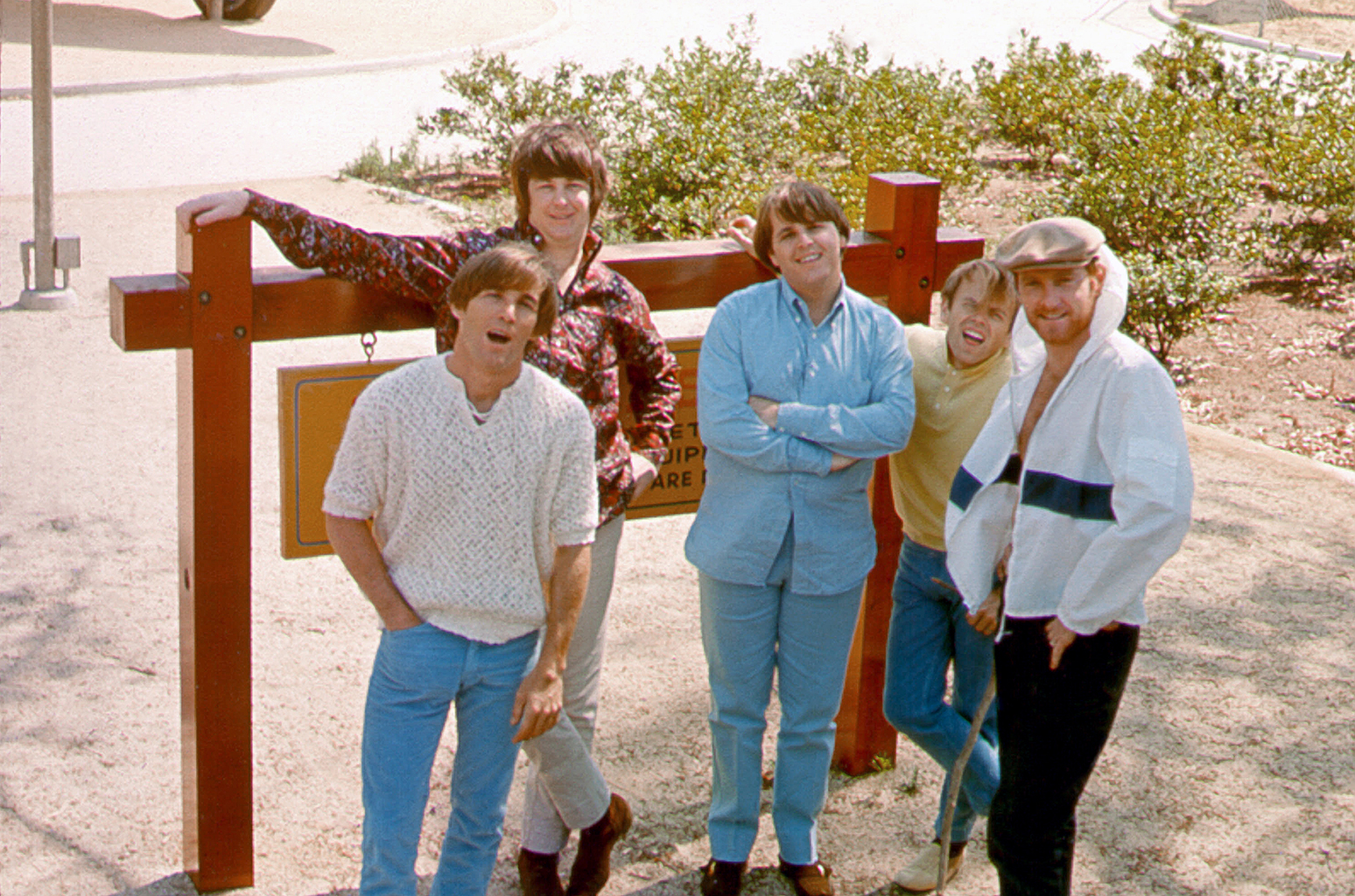
Wilson Phillips, Kenny Loggins, David Pack of Ambrosia and more are set to perform at a charity concert celebrating the music of Brian Wilson and The Beach Boys on Saturday, Sept. 27 at the Granada Theatre in Santa Barbara.
Wilson Phillips features two of Wilson’s daughters, Carnie and Wendy Wilson, as well as Chynna Phillips, the daughter of John and Michelle Phillips. The concert will also feature Brian Wilson’s grandchildren, so it will spotlight three generations of the Wilson family.
The concert, dubbed An All-Star Tribute to the Music of Brian Wilson & Songs of The Beach Boys, will feature the Folk Orchestra of Santa Barbara. Other guest performers are expected to include The Honeys; former members of The Beach Boys and the Brian Wilson Band; and keyboardist Don Randi (The Wrecking Crew); with appearances by Rosemary Butler (Jackson Browne), Ken Stacey (Elton John), Hunter Hawkins (Kenny Loggins), Carly Smithson (American Idol), Alisan Porter (The Voice) and poet Stephen J. Kalinich. These acts will be backed by The Tribe Band, who will perform an array of Beach Boys favorites.
The show begins at 7:30 p.m. Here’s a link for tickets. VIP packages are also available.
Proceeds will be donated to Adam’s Angels, a local group of volunteers, and the Surfrider Foundation of Santa Barbara, dedicated to the protection and enjoyment of the world’s oceans and beaches.
Brian Wilson died on June 11 at age 82. He was the third member of the fabled group to pass, following brothers Dennis in 1983 at age 39 and Carl in 1998 at age 51.
Entertainment
AI Artist Xania Monet, Diddy Sentencing Looms, Ticketmaster Lawsuit & More Music Law News

THE BIG STORY: If you needed another clear sign that artificial intelligence is seeping into every aspect of American cultural life, here’s one: An AI artist just signed a record deal, the hallowed milestone of success for any emerging musician.
As first reported by Billboard last week, Xania Monet — the avatar of a woman named Telisha Jones who writes her own lyrics but uses Suno to create the music — inked a record contract worth millions. The deal has quickly become the talk of the industry, including from stars who have spoken out, including Kehlani, who said: “I don’t respect it.”
But…what exactly is a label buying here? It remains unclear the extent to which you can secure intellectual property rights to AI-generated songs, raising hurdles for monetizing them. And platforms like Suno are still facing trillion-dollar infringement lawsuits that essentially claim the technology itself is illegal. For more, go read our full story.
You’re reading The Legal Beat, a weekly newsletter about music law from Billboard Pro, offering you a one-stop cheat sheet of big new cases, important rulings and all the fun stuff in between. To get the newsletter in your inbox every Tuesday, go subscribe here.
Other top stories this week…
BLIGE CASE TOSSED – A federal judge dismissed a lawsuit against Universal Music Group claiming Mary J. Blige’s enduring 1992 hit “Real Love” infringed the oft-sampled 1973 funk song “Impeach the President” by the Honey Drippers, which has been used by Run-DMC, Dr. Dre, Doja Cat and many others over the years. The judge said the two songs were so different that nobody would hear the earlier song: “The songs do not sound the same.”
DIDDY SENTENCING – Attorneys for Sean “Diddy” Combs urged a federal judge to sentence him to just 14 months in prison on his prostitution convictions, asking him to reject the kind of “draconian” punishment sought by prosecutors. Because the star has already served 13 months in jail since he was arrested, that sentence would see him released almost immediately: “It is time for Mr. Combs to go home.”
LETTERS OF SUPPORT – To help make that argument, Diddy’s lawyers filed dozens of letters from supporters, pleading with the judge to show lenience toward the rapper when he sentences him next month. They came from Diddy’s mother and kids, from ex-girlfriend Yung Miami and from an executive at hip-hop label Quality Control Music — among many others.
SUNO SUIT 2.0 – Separate from the Xania Monet situation, the major record labels filed an amended version of their copyright lawsuit against the AI music firm, adding new allegations that the company illegally “stream-ripped” songs from YouTube to train its models. That’s a hugely important new claim: In a separate such lawsuit against Anthropic, a federal judge ruled this summer that AI training itself is likely a legal “fair use” but that using pirated works to do it could lead to many billions in potential damages.
FTC, YEAH YOU KNOW ME – The Federal Trade Commission filed a lawsuit against Live Nation and Ticketmaster accusing the concert giants of advertising misleading ticket prices and allowing scalpers to buy up tickets and resell them at inflated prices. The case came months after the agency sued a ticket broker that allegedly used thousands of fake Ticketmaster accounts to buy and resell tickets to Taylor Swift concerts and other events — and two years after Live Nation was hit with a sweeping monopoly lawsuit by the U.S. Department of Justice.
HYPE VID SETTLEMENT – Mike Tyson settled a lawsuit claiming he illegally used the Jay-Z, DMX and Ja Rule song “Murdergram” in an Instagram video promoting his boxing match against Jake Paul. The case was filed by Ty Fyffe, a producer and co-writer of the 1998 track who claimed that Tyson had willfully infringed his copyrights by using the song in a training video ahead of his much-hyped fight with Paul.
LOSE YOUR … CASE? – Meta urged a federal judge to dismiss a lawsuit from Eight Mile Style, a music publisher that owns hundreds of Eminem songs, which claims the social media giant made “Lose Yourself” and other iconic tracks available to billions of users. In the motion, Facebook’s lawyers argued the case was “remarkably short on specifics” about actual infringing material: “Fanciful estimates are not a substitute for well-pleaded facts,” the company wrote.
NEVER MEANT TO CAUSE YOU ANY PAIN – The Prince estate asked a judge to dismiss a lawsuit by the late singer’s Purple Rain co-star Apollonia (Patty Kotero) that claims the estate is trying to “steal” her name, arguing it has no intention of forcing her to change her name — and has repeatedly told her as much. The filing did say, however, that Apollonia secured her own trademarks during “the chaotic period following Prince’s death.”
SEX TAPE LEAK CASE – Colombian pop star Beéle was hit with a lawsuit alleging invasion of privacy and sexual cyberharassment from ex-girlfriend Isabella Ladera, claiming he is responsible for leaking their sex tape. Beéle’s reps have denied that he was the source of the leak and said the singer is “also a victim,” but Ladera’s lawsuit placed the blame squarely on him: “Only two people had the videos, and Ladera had already erased them almost a year and a half before.”
MEGAN THEE PLAINTIFF – Lawyers for Megan Thee Stallion argued in court filings that the social media personality DJ Akademiks must reveal whether Tory Lanez sent him a confidential DNA testing report during the singer’s criminal case. The filings came amid discovery in a defamation case against Milagro Gramz, a gossip blogger and ardent online defender of Lanez.
-

 Entertainment6 months ago
Entertainment6 months agoNew Kid and Family Movies in 2025: Calendar of Release Dates (Updating)
-

 Entertainment3 months ago
Entertainment3 months agoBrooklyn Mirage Has Been Quietly Co-Managed by Hedge Fund Manager Axar Capital Amid Reopening Drama
-
Tech6 months ago
The best sexting apps in 2025
-

 Entertainment5 months ago
Entertainment5 months agoKid and Family TV Shows in 2025: New Series & Season Premiere Dates (Updating)
-

 Tech7 months ago
Tech7 months agoEvery potential TikTok buyer we know about
-
Tech7 months ago
iOS 18.4 developer beta released — heres what you can expect
-

 Tech7 months ago
Tech7 months agoAre You an RSSMasher?
-

 Politics7 months ago
Politics7 months agoDOGE-ing toward the best Department of Defense ever





